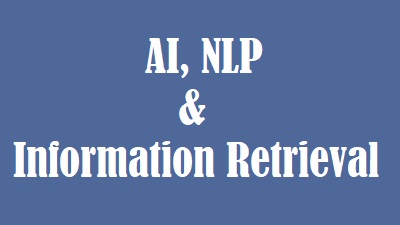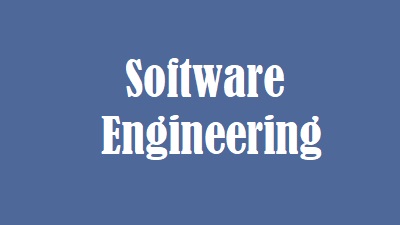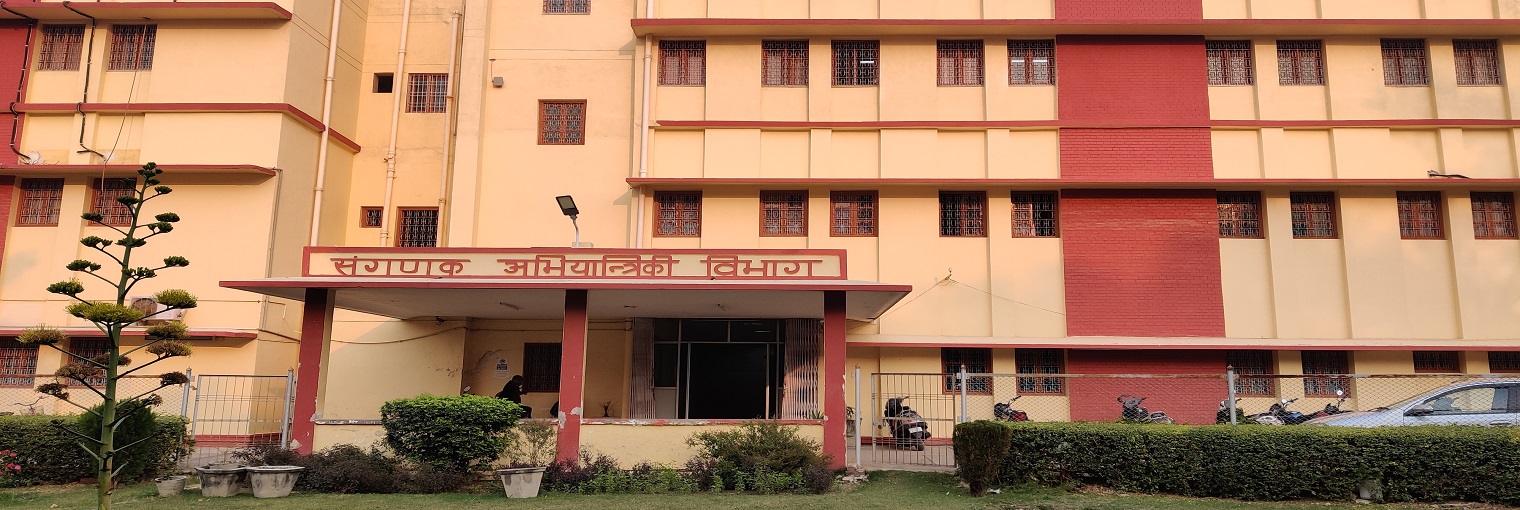Dual Degree (IDD)
Department also offers dual degree i.e., B.Tech. and M.Tech., in Computer Science and Engineering from 2005-06. The students work on a research problem independently leading to M.Tech. Dissertation for a period of one year after completing the four years of B.Tech. programme. They earn their M.Tech. degree along with B.Tech. degree.
M.Tech.
The department starts a full-time M.Tech. program in Computer Science and Engineering. The program considers Artificial Intelligent (AI) and the Internet of Things (IoT) specializations. The program covers core courses, elective courses, and the project. The admission in the program is through GATE.
Ph.D.
The department is actively involved in research in many areas of Computer Science. The focus of the PhD program is on research training with a high degree of specialization. The aim of such a training is to make our PhD students very competent in their respective areas, so that they may be able to take up teaching or research-and- development work in future. Ph.D. students are also involved in teaching assistantship. This develops their teaching abilities. A admitted PhD student pursue his research in a specific area of research with a highly trained faculty member who is his/her PhD thesis supervisor. Information related to various specializations available in the Dept. are available in respective section.
1. Artificial Intelligence, Computer Vision and Machine Learning.
2. High Performance Computing and Data Engineering
3. Computer Networks
4. Information Extraction / Retrieval and Data Analytics
5. Natural Language Processing
6. Cyber Security, Cryptography, Cyber Physical System, and Game Theory
7. Quantum Computing/ Quantum Information Processing
8. Computer Architecture
9. Theoretical Computer Science
- For further details and application form Click Here
- Dr. Harsh Kasyap receives DST-INSPIRE Faculty Fellowship Research Grant. 2025
- Dr. Prasenjit Chanak, is appointed as Associate Editor of Wireless Personal Communications (Springer). 2025
- Dr. Ajay Pratap received recognition from Hon’ble Education Minister Dharmendra Pradhan and the Chiefs of the Army, Navy, and Air Force for the research project in the defence sector, on 23rd September 2025.
- Dr. Ajay Pratap has been assigned Associate Editor for journal Scientific Reports, published by Springer Nature, since April 3, 2025. Dr. Ajay Pratap has been assigned Associate Editor for journal Wireless Personal Communications, published by Springer since July 23, 2025.
- Dr.Aparajitha Khan and Dr.Harsh Kasyap Joined as Assistant Professors. 2025
- Dr. O S L Bhavana is selected as INAE Young Associate 2024. 2024
- Dr. O S L Bhavana receives DST-INSPIRE Faculty Fellowship Research Grant. 2023
- Dr. Ajay Pratap has been honored with the Young Engineer Award in Computer Engineering at the 36th National Convention of Computer Engineers hosted by the Institution of Engineers (India) on the 16th of October 2023.
•Prof. Sandeep Gupta, Director, School of Computing, Arizona State University, USA and an Alumnus of First Batch (1987) of CSE Dept. on 24.12.2019.

The Department of Computer Engineering was established in July 1983. The department offers a 4 year course, B.Tech. in Computer Sc. & Engineering, 5 year Integrated Dual Degree (B.Tech. and M.Tech.) in Computer Sc. & Engineering from 2005-2006, and Ph.D. degree in various specializations of Computer Sc. and Engineering. Computer Sc. & Engineering is the most sought- after branch for the JEE (Advanced) selected students that come to the Institute. Our graduates have distinguished themselves in higher studies at the top Universities. They also occupy positions of eminence in the computer industry. Our Alumni remain in constant touch with us and are contributing in the development of the department. Placements for our graduates are the best in the Institute.
Department of Computer Science & Engineering
- _
- _

Digital image processing is the use of computer algorithms to perform image processing on digital images. It allows a much wider range of algorithms to be applied to the input data and can avoid problems such as the build-up of noise and signal distortion during processing.

Natural language processing (NLP) is a field of computer science, artificial intelligence and computational linguistics concerned with the interactions between computers and human (natural) languages, and, in particular, concerned with programming computers to fruitfully process large natural language corpora.

Network group works in different areas of network viz. Network Security, Social Networks, Peer to Peer networks, Wireless Sensor Networks etc.. One interesting problem on which group worked on is Delay Tolerant Proactive Transmission Protocol in collabration with ISRO, SAC, Ahmedabad. The proposed protocol is variation of TCP protocol for deep space (interplanetary internet).

Machine learning is an area of computer science in which algorithms learn and improve from experience. But systems are not explicitly programmed to do so. It comprises of various sub-fields like supervised learning, unsupervised learning, semi-supervised and reinforcement learning. From web search to bioinformatics machine learning has wide applications.

Our research group mostly focuses on the area of dependable and smart software development for various types of end-users. We intend to set up a dependable and smart systems development lab that will provide a facility for learning the concepts by researchers, and the same can be used for conducting purposeful research in the area of software development.Our research group mostly focuses on the area of dependable and smart software development for various types of end-users. We intend to set up a dependable and smart systems development lab that will provide a

HPC Group is providing training, assistance, and support for researchers and students in high performance computing in the institute.



